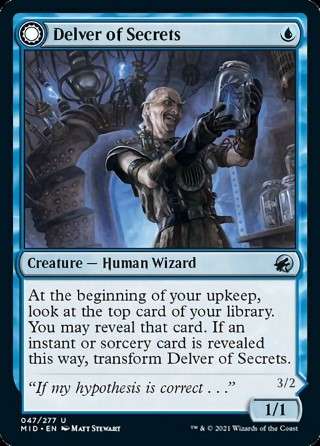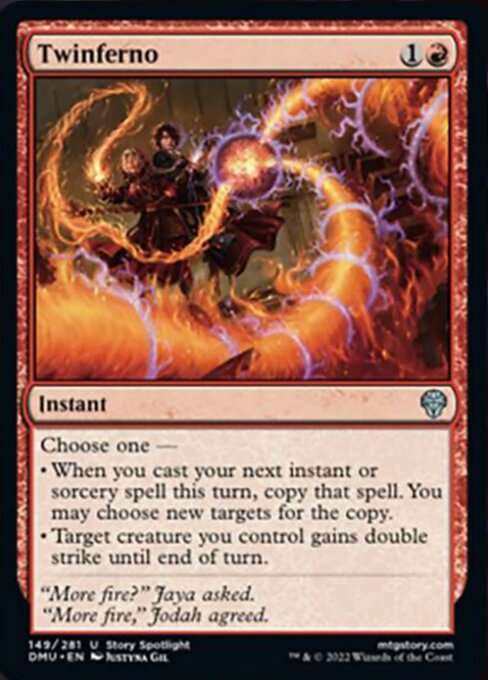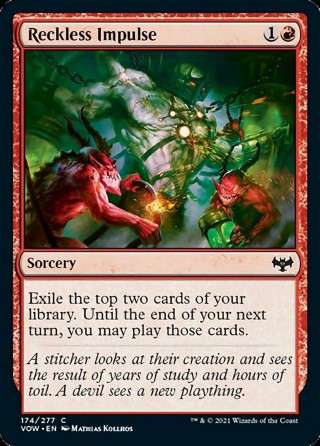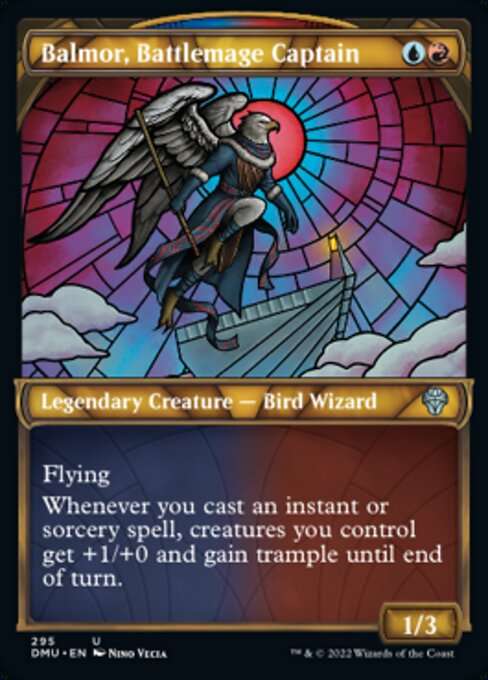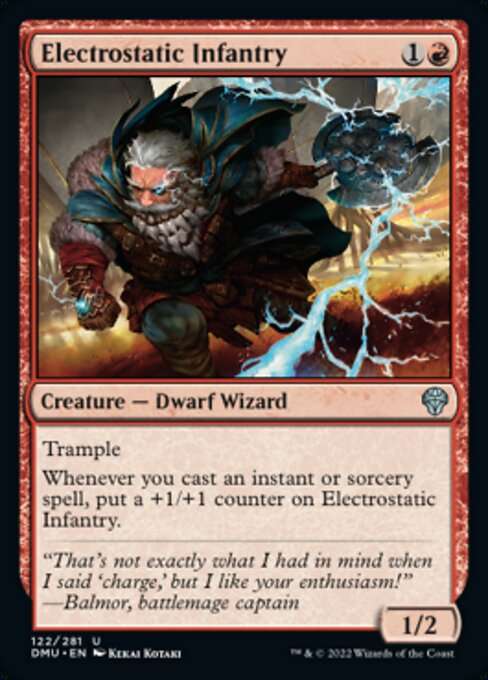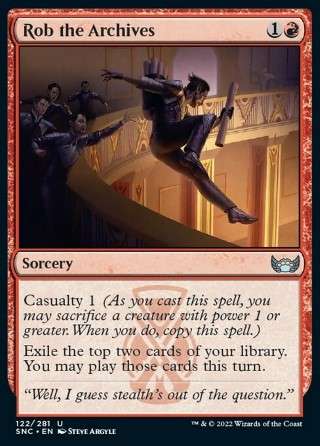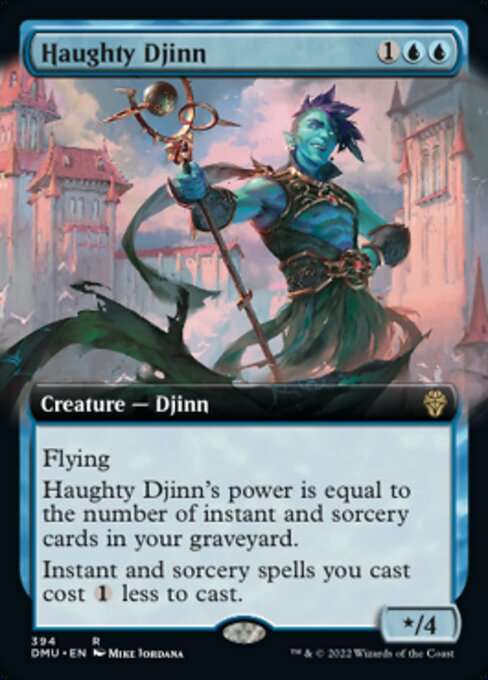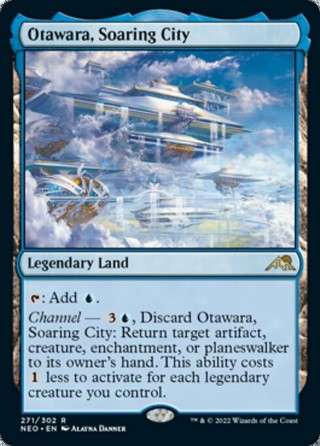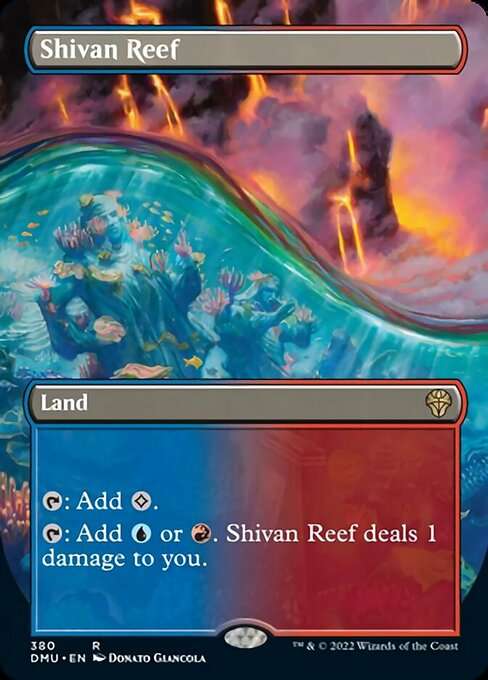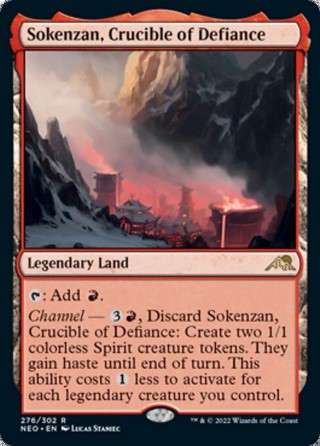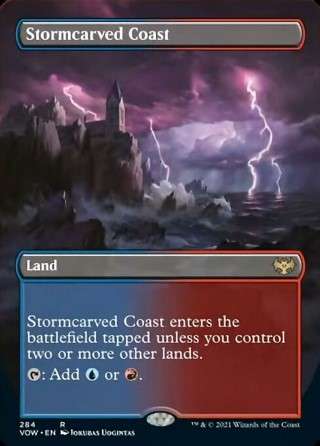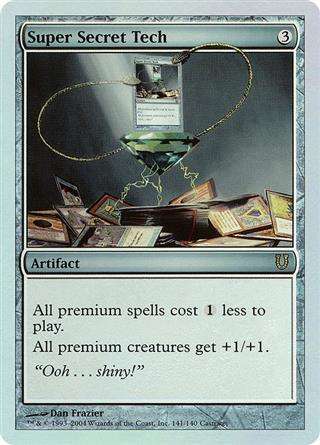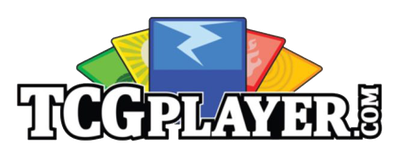Arena Standard - Izzet Spells Aggro
- Deck contains 7 invalid cards for this format: Delver of Secrets // Insectile Aberration (MID), Reckless Impulse (VOW), Stormcarved Coast (VOW), Otawara, Soaring City (NEO), Sokenzan, Crucible of Defiance (NEO), Consider (MID), Rob the Archives (SNC)
Main 60 cards (16 distinct)
| Creature (16) | |||
|---|---|---|---|
| $4.22 | |||
| $0.42€0.740.04 | |||
| $0.20 | |||
| $0.25€0.200.02 | |||
| Instant, Sorcery, Enchantment, Artifact (22) | |||
| $0.25€0.200.02 | |||
|
4
Impulse
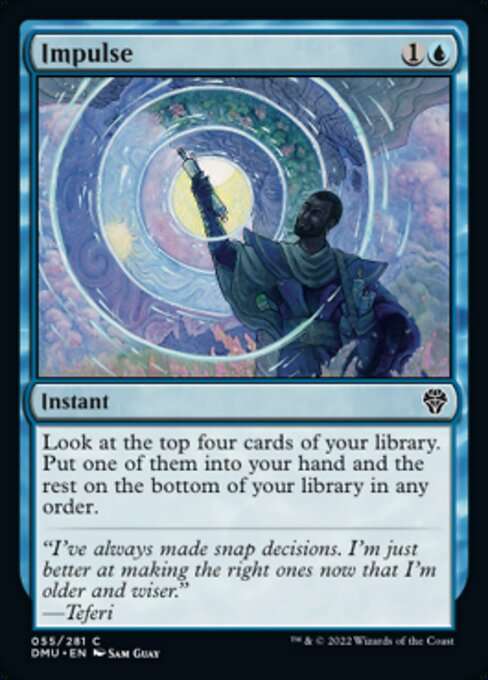
|
$0.20€0.130.02 | ||
|
4
Shore Up
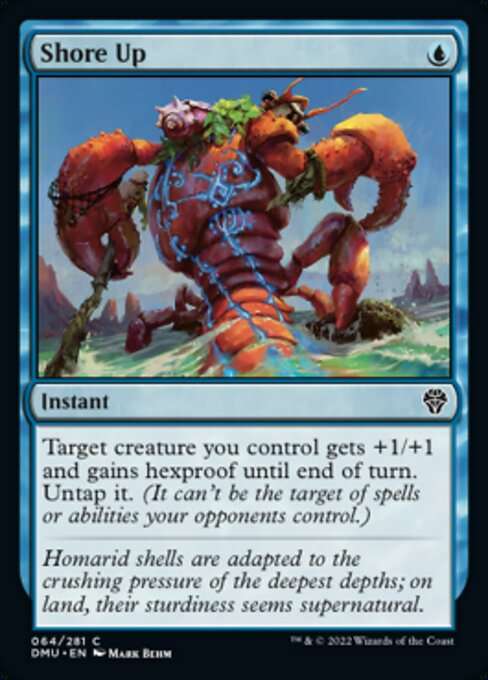
|
$0.25€0.140.02 | ||
| $0.73€1.340.03 | |||
|
4
Consider
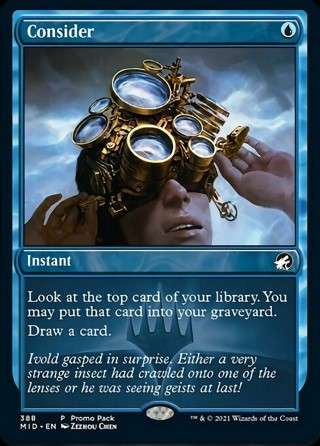
|
$2.12 | ||
| $0.20€0.070.01 | |||
| Land (22) | |||
|
7
Island
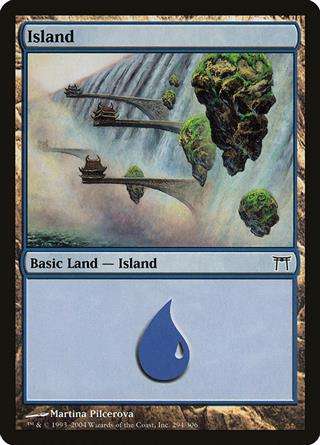
|
$0.39€0.160.03 | ||
|
5
Mountain
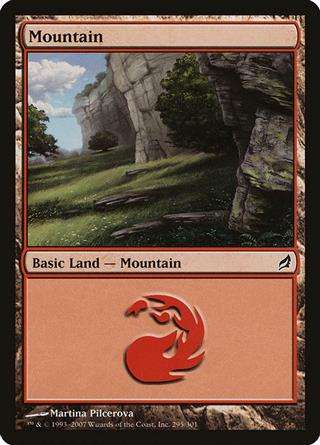
|
$0.35€0.180.03 | ||
| $2.20 | |||
| $5.83 | |||
| $15.25€18.304.24 | |||
| $2.18€3.941.58 | |||
(Simplified, true algorithm in MTGA not revealed by Wizards yet)
COMPARE WITH AETHERHUB COLLECTION
Add at least 100 different cards to your collection and set it as your Compare Collection on the manage page to see what cards from this deck you are missing.
COMPARE WITH MTG ARENA COLLECTION
Compare your MTG Arena Collection with AetherHub decklists or any other decks found on the web with the MTGA Assistant extension. Syncing your account will automatically upload your collection so you can see what cards you are missing right here.
Learn more Download For Windows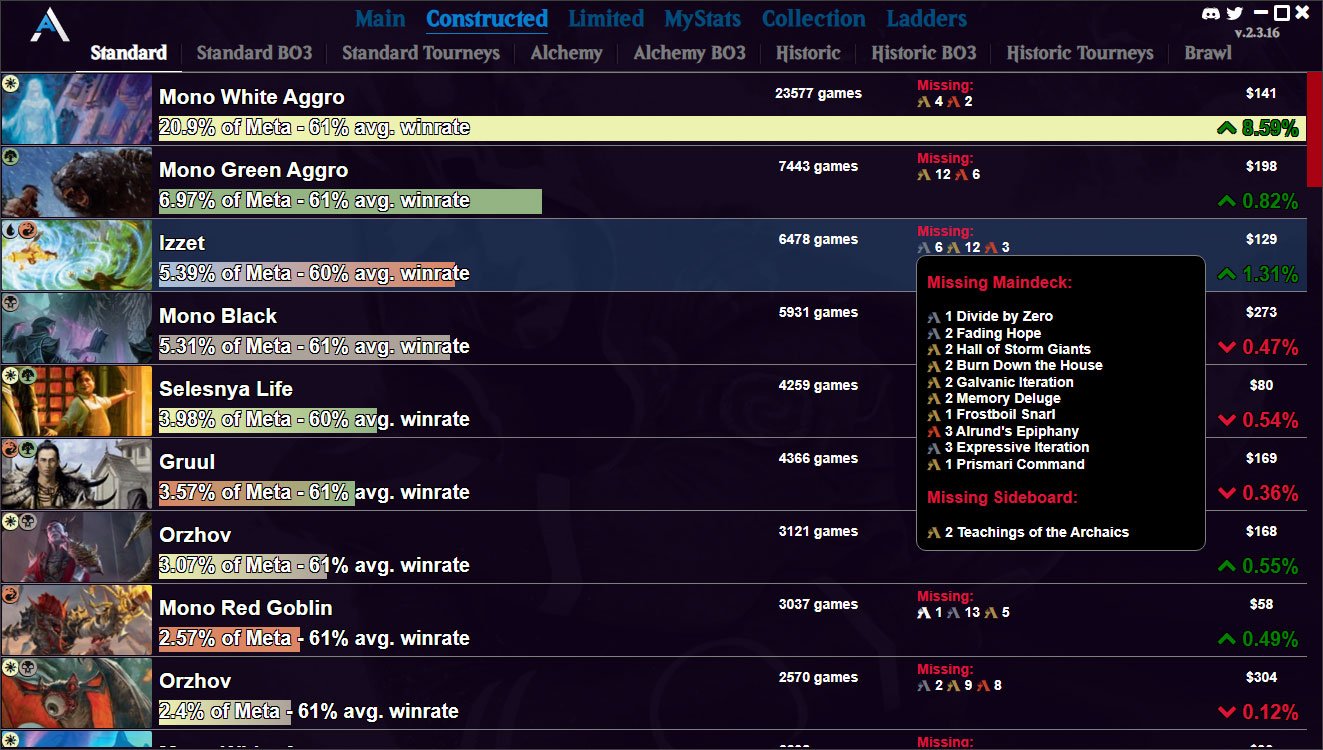
I believe that this is the fastest (and winningest) aggro strategy in the current format. It has no problem stomping any of the popular black strategies, and it is also fast enough to give mono blue a hard time as well.
Creature Threats
There are 16 creature threats in this spells-payoff focused deck. This is maybe unusual, but what it means is that we can very consistently apply pressure to our opponent and if (when) our creatures get removed, we can also easily replace them.
Delver of Secrets // Insectile Aberration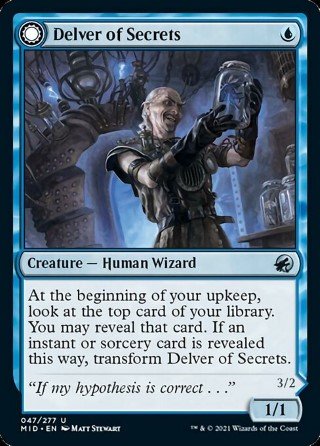 does it's usual thing: if you play it and flip it early it often ends up providing at least 6 damage, if not more- or otherwise will help by eating your opponent's spot removal.
does it's usual thing: if you play it and flip it early it often ends up providing at least 6 damage, if not more- or otherwise will help by eating your opponent's spot removal.
All of our other creatures scale as the game goes on:
Electrostatic Infantry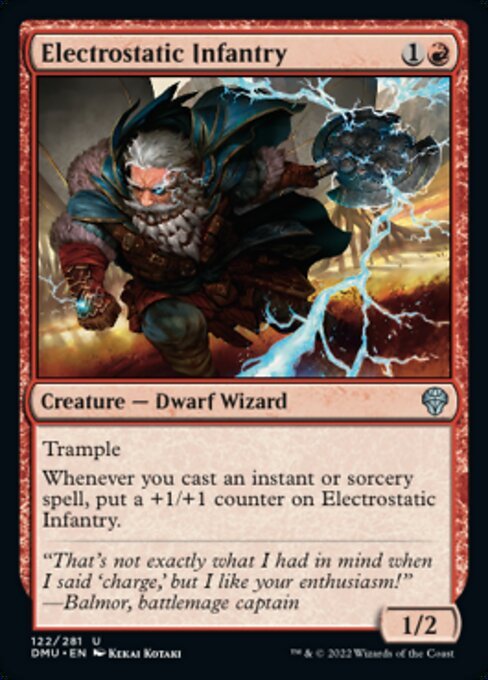 can grow to be big very quickly by chaining card draw spells one after the other.
can grow to be big very quickly by chaining card draw spells one after the other.
Balmor, Battlemage Captain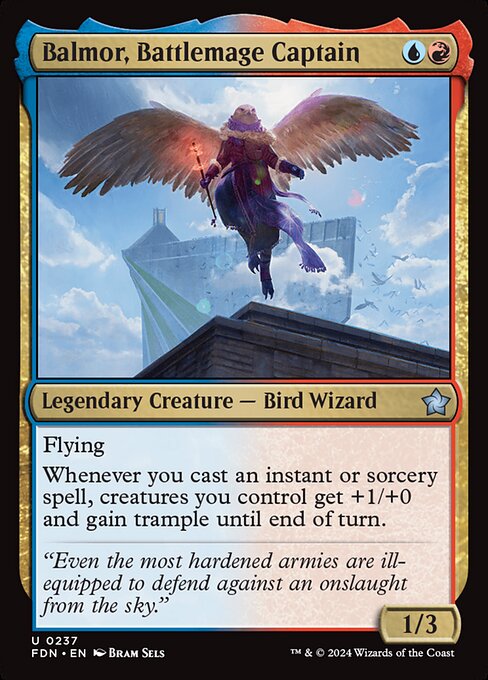 pumps our whole board for each spell and gives everything trample.
pumps our whole board for each spell and gives everything trample.
Haughty Djinn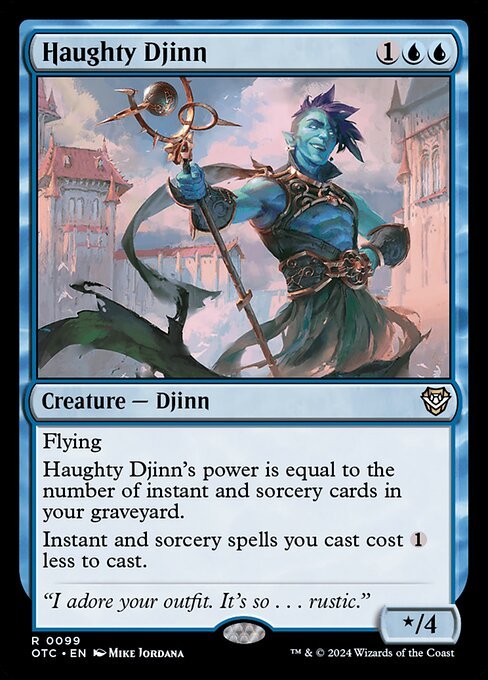 gets power for each spell you've played in the game so far, and adds a cost reduction, cutting most of our spell costs in half.
gets power for each spell you've played in the game so far, and adds a cost reduction, cutting most of our spell costs in half.
Card Draw
The most important type of spell in the deck is a spell which draws us more spells to cast, since casting spells will grow our whole board. By doing so, we can have absolutely explosive turns and it's not unusual to dish out an extra 8 damage out of nowhere on the back of this card draw.
Consider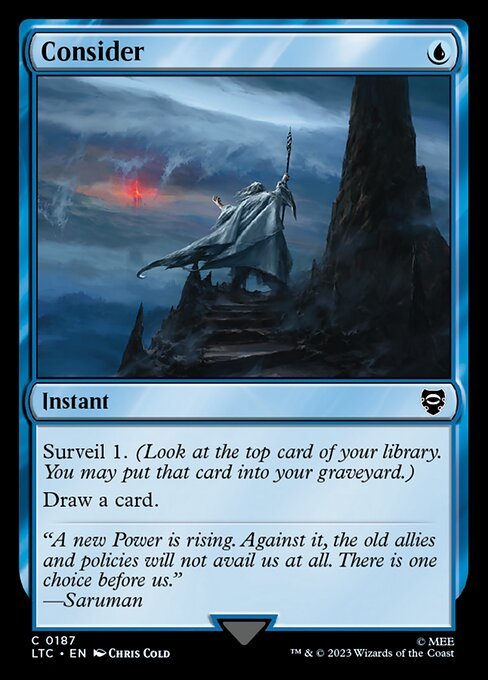 is always 1 mana whether or not we have Haughty Djinn out.
is always 1 mana whether or not we have Haughty Djinn out.
Impulse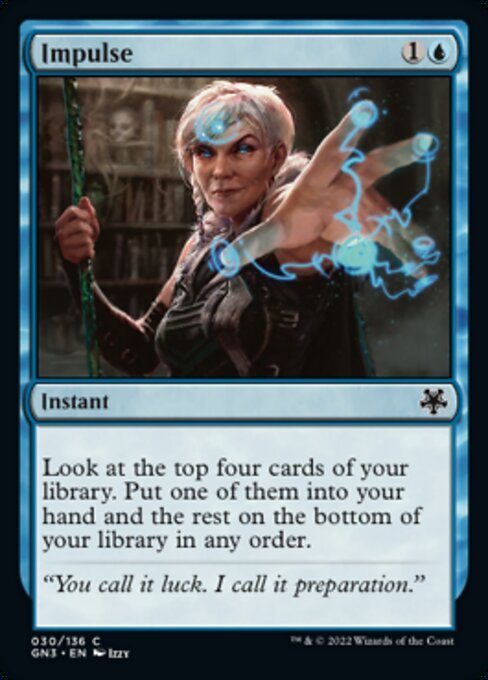 is the best spell in the deck. The selection makes it very likely you can find not only another spell, but another spell that will draw you cards.
is the best spell in the deck. The selection makes it very likely you can find not only another spell, but another spell that will draw you cards.
Reckless Impulse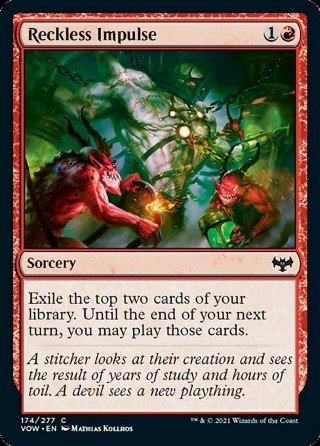 is card advantage if you are able to play both cards gained off of it.
is card advantage if you are able to play both cards gained off of it.
Rob the Archives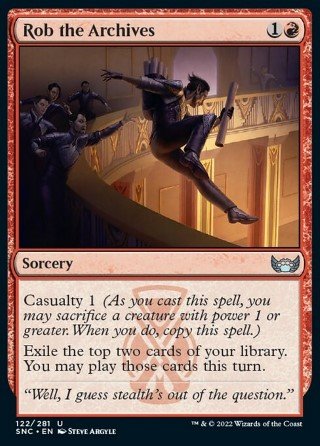 is the worst card in the deck and is most likely to be replaced when the next set is released, however it is the best of many bad options. It's better than a simple cantrip such as Ancestral Anger
is the worst card in the deck and is most likely to be replaced when the next set is released, however it is the best of many bad options. It's better than a simple cantrip such as Ancestral Anger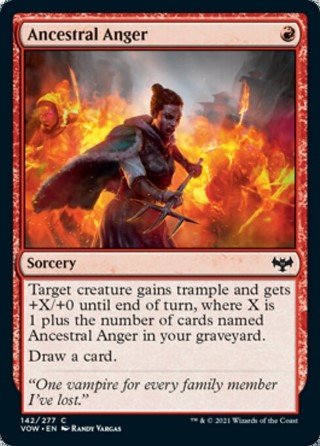 because it's twice as likely to hit another spell to cast. But you must play the spellls exiled with Rob the Archives the turn you play it, which is a significant disadvantage. Sometimes it's worthwhile to pay the Casualty cost, but most often you are casting it without.
because it's twice as likely to hit another spell to cast. But you must play the spellls exiled with Rob the Archives the turn you play it, which is a significant disadvantage. Sometimes it's worthwhile to pay the Casualty cost, but most often you are casting it without.
Other Cards
There are only six other cards in the deck:
4x Shore Up , providing some protection but also helping to add damage to the board sometimes.
, providing some protection but also helping to add damage to the board sometimes.
2x Twinferno to help finish the game. It's likely the creature you're targeting will have Trample, so this basically acts as an Embercleave.
to help finish the game. It's likely the creature you're targeting will have Trample, so this basically acts as an Embercleave.
Win By Turn 5
That's the strategy. Sometimes we will win by turn 6 instead. Unlike many other aggro strategies, we are by no means out of the game past turn 6, but it's very important to have applied a lot of damage before turn 6 so that an opponent must respond to every threat from that point on.
Winning Against Black
An early win is how we dodge The Meathook Massacre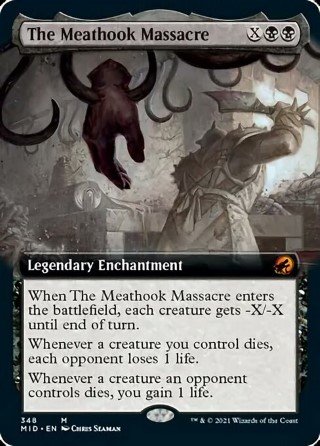 . The earliest our opponent will want to play it is turn 5, however they will often want to wait until turn 6 to play around Shore Up (pumping toughness) and/or because of our 4 toughness Haughty Djinn. If and when they do play Meathook Massacre, we hope to be able to pump toughness with Short Up or to be able to cast enough spells to grow Electrostatic Infantry too big to be killed by it.
. The earliest our opponent will want to play it is turn 5, however they will often want to wait until turn 6 to play around Shore Up (pumping toughness) and/or because of our 4 toughness Haughty Djinn. If and when they do play Meathook Massacre, we hope to be able to pump toughness with Short Up or to be able to cast enough spells to grow Electrostatic Infantry too big to be killed by it.
We just plain don't care about Sheoldred, the Apocalypse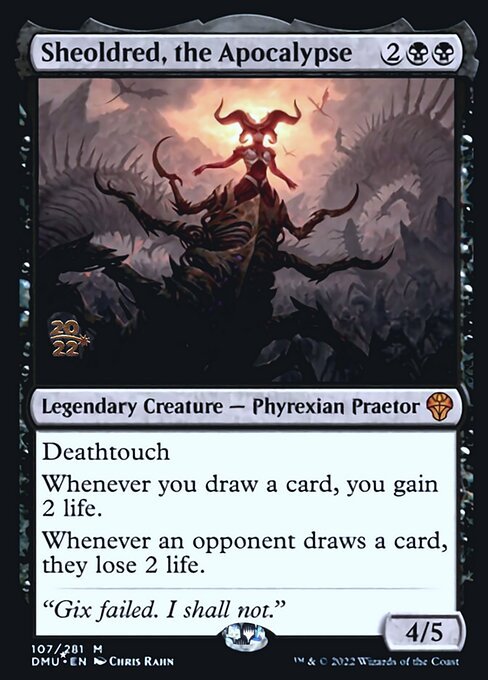 . The damage doesn't mean anything to us usually. The life gain is unfortunate, but it usually doesn't make the difference for lethal.
. The damage doesn't mean anything to us usually. The life gain is unfortunate, but it usually doesn't make the difference for lethal.
Liliana of the Veil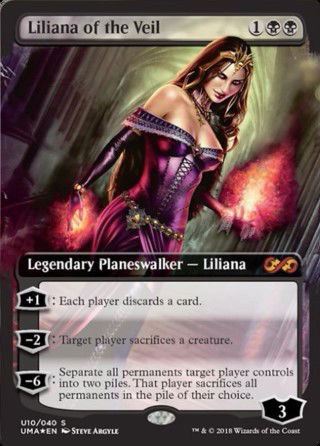 is also not a significant threat. It's important to try to keep two or more creatures on the board so they don't make you sac your good one. Otherwise, the discard doesn't really matter that much to us.
is also not a significant threat. It's important to try to keep two or more creatures on the board so they don't make you sac your good one. Otherwise, the discard doesn't really matter that much to us.
Invoke Despair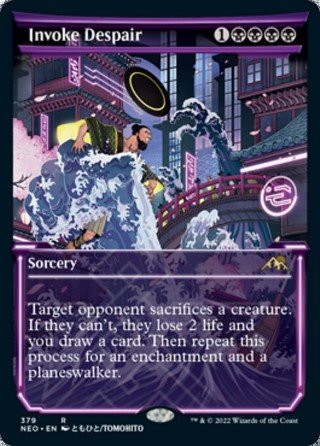 's damage is usually unimportant to us. Killing a creature is more important, and this is another reason it is good to try to keep two or more creatures on the board.
's damage is usually unimportant to us. Killing a creature is more important, and this is another reason it is good to try to keep two or more creatures on the board.
Bluffs
The most obvious thing to bluff is having a Shore Up . For this reason, if you have a blue mana open it can be nice to bluff one by turning on full control (in Arena) during the appropriate times.
. For this reason, if you have a blue mana open it can be nice to bluff one by turning on full control (in Arena) during the appropriate times.
The other big thing to bluff is having a Make Disappear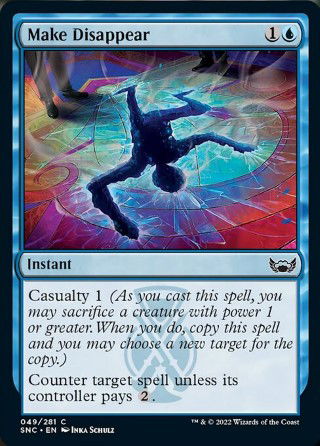 . This is the card your opponents are most likely to play around. And this is one of the benefits of playing a lesser-known, off-meta deck: we can get a lot of the benefits of playing Make Disappear without actually having to play it. Again, when playing in Arena make sure to turn on full control during the appropriate times to bluff. This is one of our best bluffs because if we can make our opponent play more slowly that is a huge advantage to us, and playing more slowly is the only real way to play around a counterspell.
. This is the card your opponents are most likely to play around. And this is one of the benefits of playing a lesser-known, off-meta deck: we can get a lot of the benefits of playing Make Disappear without actually having to play it. Again, when playing in Arena make sure to turn on full control during the appropriate times to bluff. This is one of our best bluffs because if we can make our opponent play more slowly that is a huge advantage to us, and playing more slowly is the only real way to play around a counterspell.
Your opponents will expect you to run Fading Hope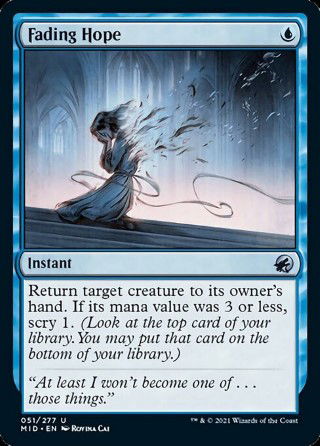 , though this is a less important thing to bluff having.
, though this is a less important thing to bluff having.
Latest Articles
| 16 | 18 | 14 | 0 | 0 |
|---|---|---|---|---|
| 0 | 0 | 0 | 0 | 0 |
| Symbols | Percentage | Lands |
|---|

